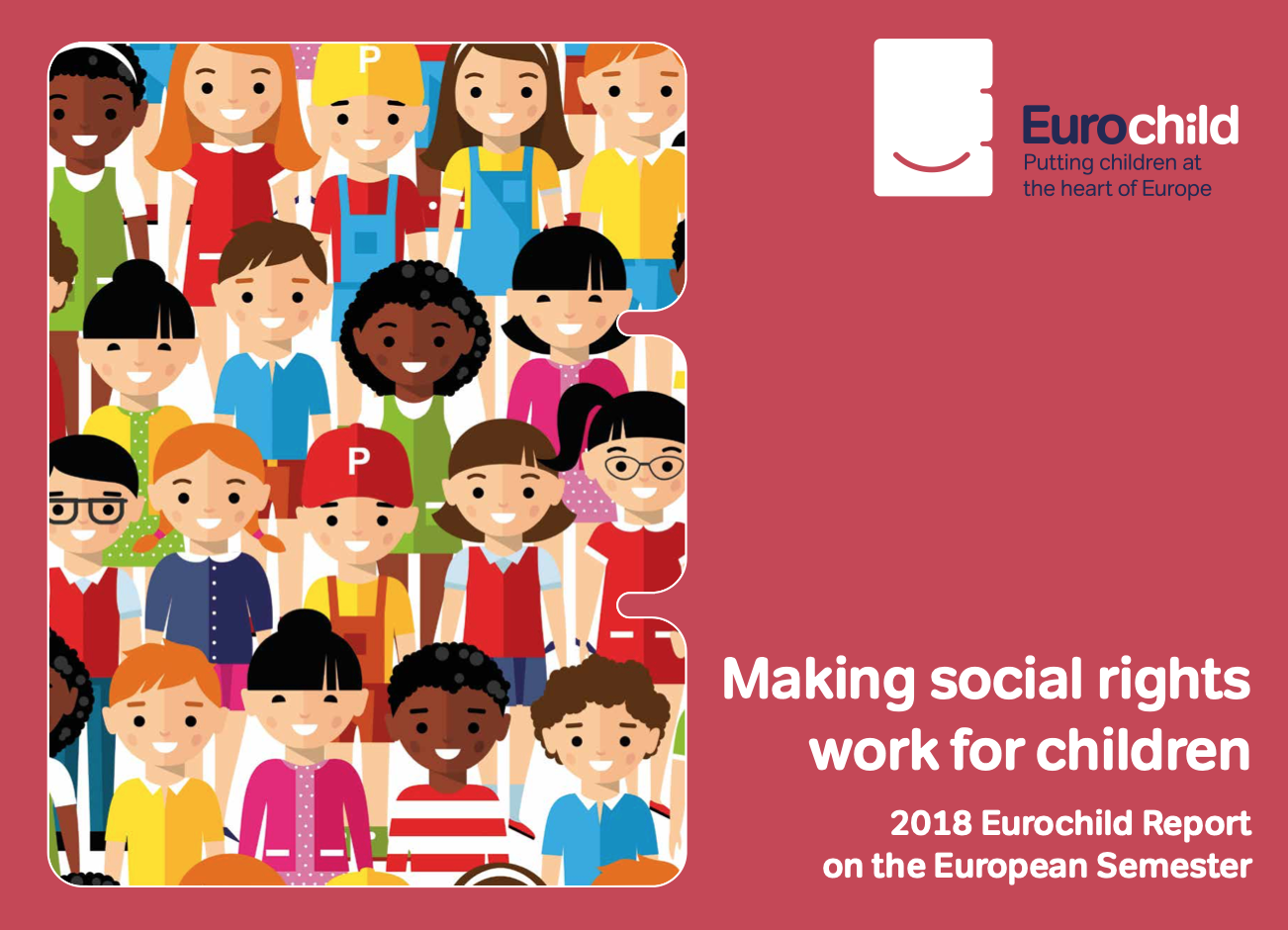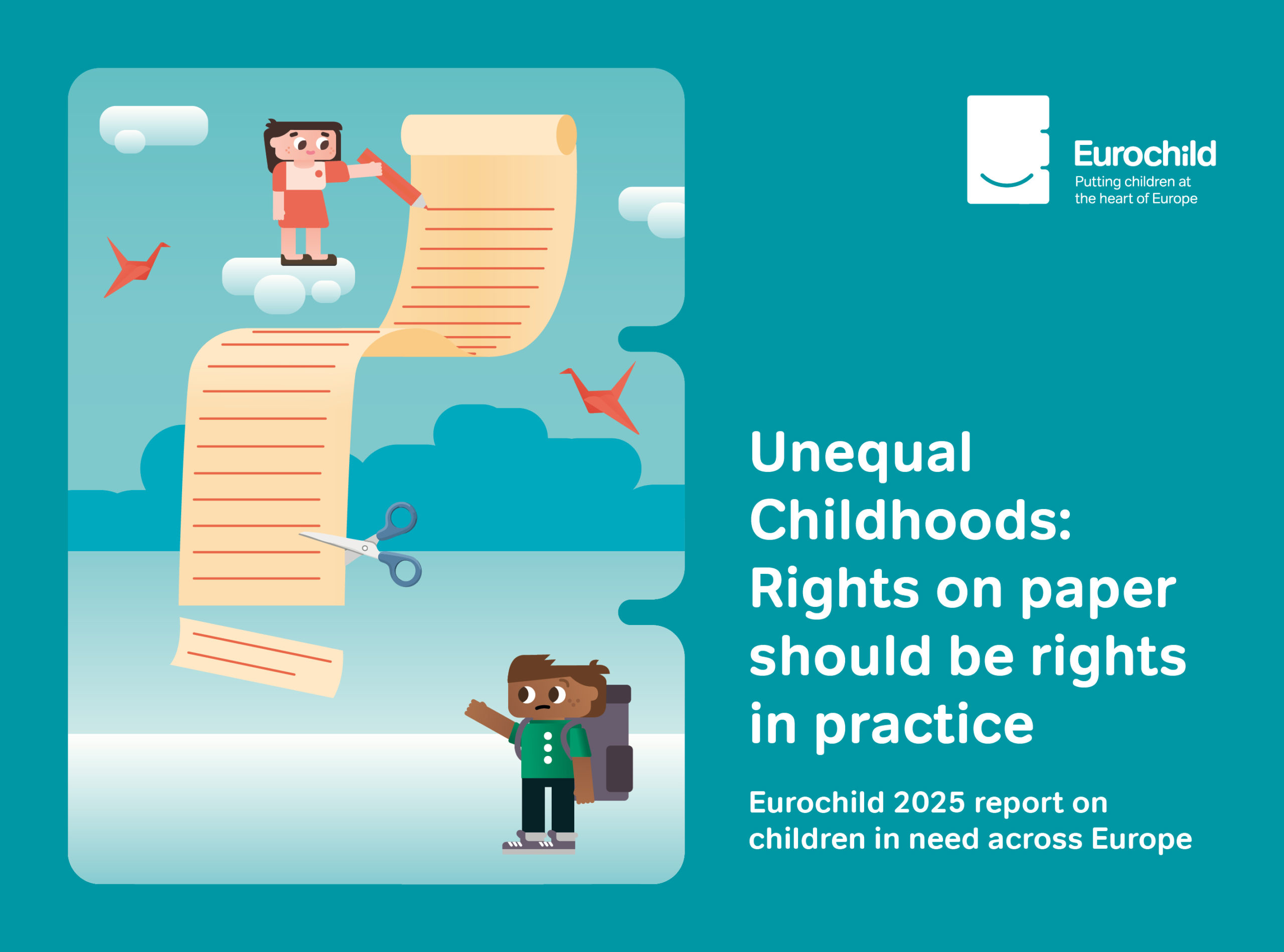Making social rights work for children
2018 Eurochild Report on the European Semester
Eurochild launched its assessment of the first European Semester since the Proclamation of the European Pillar of Social Rights (November 2017). With the ‘social dimension’ being more visible in this cycle, the European Commission flags child poverty in more than 75% of the Country Reports of EU Member States. Only one country (Spain) received a recommendation to address family income, which only addresses one of the many reasons for child poverty.
The 2018 Eurochild report on the European Semester offers its own alternatives to the country specific recommendations in light of assessments by Eurochild members. The report is based on assessments provided by 23 Eurochild members in 18 countries.
The European Semester is the EU’s economic, social and employment policy framework that runs on a yearly cycle. Eurochild seeks greater and better investment in children to tackle poverty. Currently, 25 million children in the EU face poverty and social exclusion (Eurostat, 2017).
Eurochild members find the European Semester process helpful for improving policies for children nationally. The Slovenian NGO network ZIPOM has noted that EU guidance has been instrumental in pushing for reform. The new Slovenian Resolution on Family Policy, for example, mentions a better health system to address the needs of disadvantaged children and reducing inequality by investing in early childhood education and care.
Overall Recommendations:
1. Put social goals on a par with the economy and employment
The Social Scoreboard and common indicators measured by Eurostat monitor important social trends over time and between countries, for example child poverty, early school leaving, or childcare enrolment. But Eurochild members also believe more can be done to make better use of existing data and to develop new indicators which will give a more complete picture of children’s situation and better guide policy responses.
2. Make children an explicit and priority focus of the Semester
Ireland, for instance, has been recommended by the European Commission to offer affordable and quality childcare. This recognition is important to highlight children’s learning and developmental needs are dependent on good economic policies and budgets.
3. Make the Semester process more transparent and inclusive
Our Dutch members are encouraged by the European Pillar of Social Rights’ requirement to have national strategies on child participation that can help bring children’s voices into policymaking.





